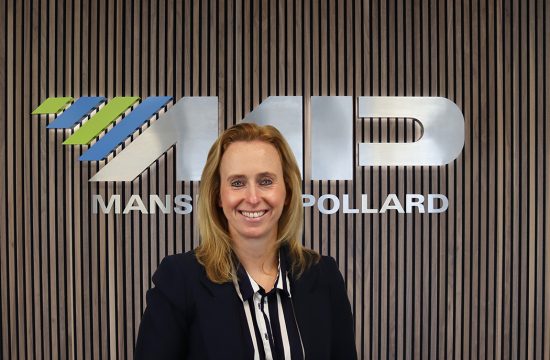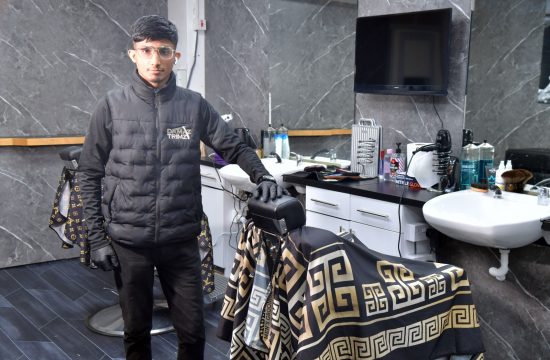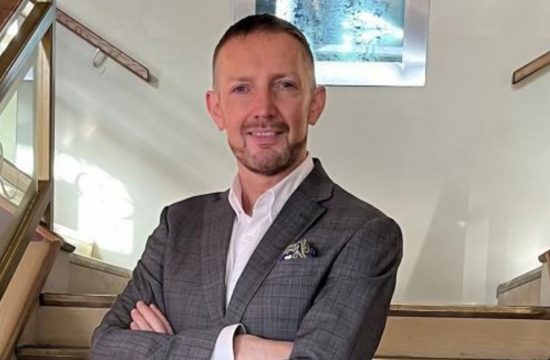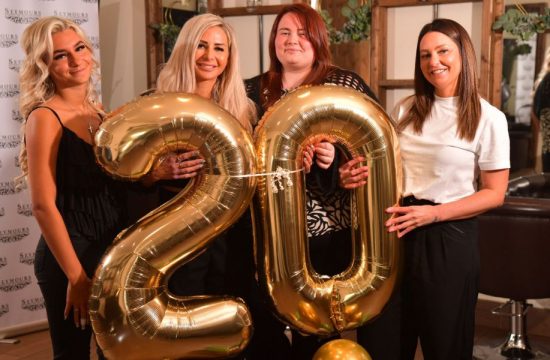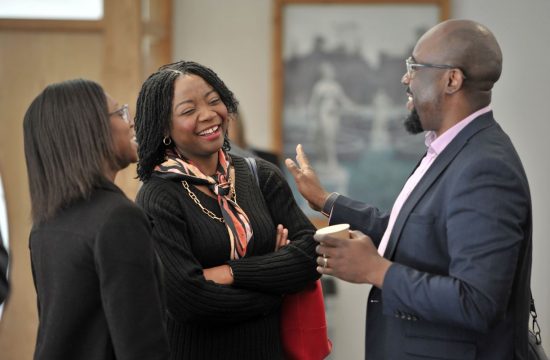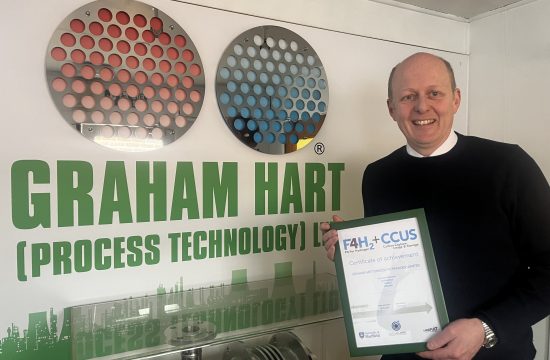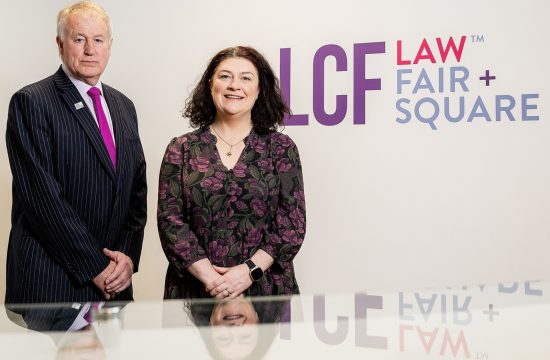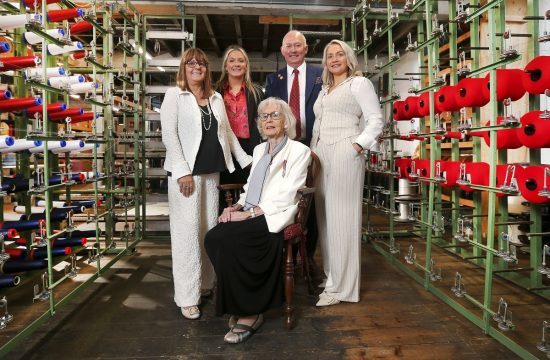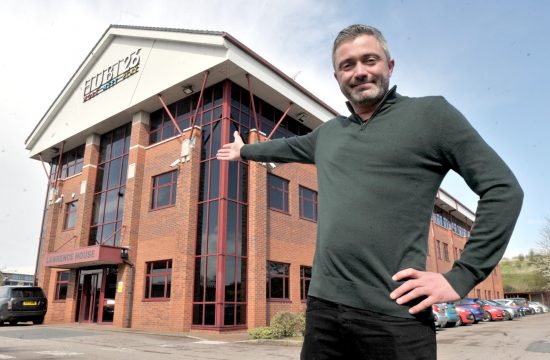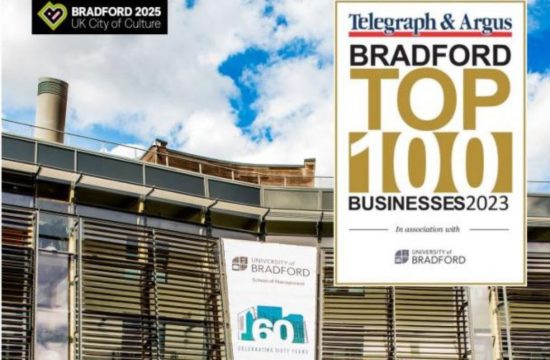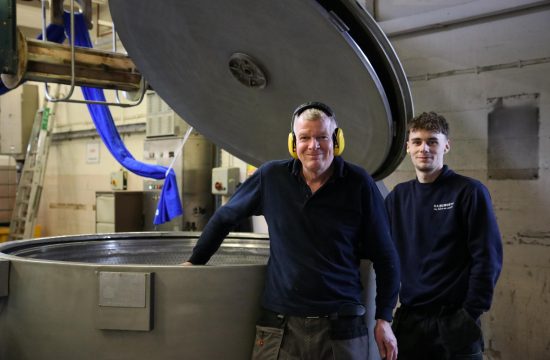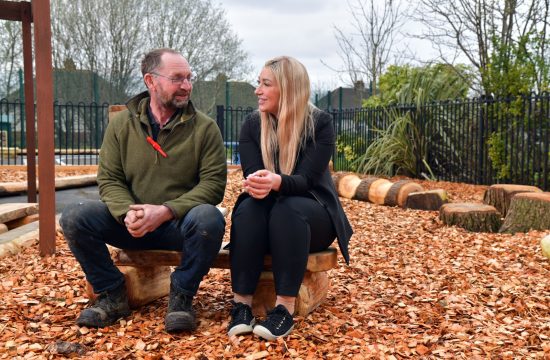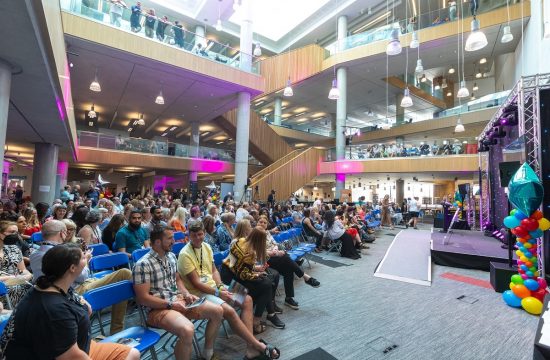Asma Iqbal, Partner at Chadwick Lawrence Solicitors, has had quite a year.
In January 2022 she was named a Hot 100 Lawyer – one of the most prestigious accolades in the UK legal world – by The Lawyer magazine.
Since then, she has received the Outstanding Business Leader award in the Yorkshire Hero Awards, been named Diversity and Inclusion Leader in the Northern Leadership Awards and appeared as a guest speaker on the Islam Channel.
This came hot on the heels of her being named one of Most Influential South Asian people in Bradford in 2021 by The Asian Standard newspaper.
You could be forgiven for pausing for breath after that whirlwind of success, but nothing could be further from Asma’s mind.
She is focused on helping Chadwick Lawrence, the law firm where she has been Partner in Insolvency and Litigation since 2007, further develop its work with business and sporting organisations to conduct ‘root and branch’ audits of their equality, diversity and inclusion (EDI) practices and help them ensure that their actions live up to the pledges set out in their policy documents.

The Yorkshire-wide company, which has an office on Manor Row in Bradford, has for many years worked with sports clubs such as Leeds Rhinos Rugby League Club and Huddersfield Town Association Football Club, to help embed responsible conduct in line with the clubs’ commitment to EDI practices. More recently, two years ago, they also became the legal partner to Bradford Bulls.
Ann Hough, Operations Director for Huddersfield Town Association Football Club, says: “Neil Wilson from Chadwick Lawrence Solicitors has worked with Huddersfield Town, and our young players who are starting out their careers as footballers, for many years in helping them understand and instil the correct behavioural standards encouraging to commit to their own ‘Personal Code of Conduct’.
“This work is always well received by colleagues at our club.”
The law firm’s decision to build on the expertise derived from the above relationships and expand on its EDI related work owes much to a snap decision Asma made in September 2020, when she watched a Sky interview with former professional cricketer Azeem Rafiq.
In it, Azeem described the racist abuse and bullying he had suffered while playing for Yorkshire County Cricket Club (YCCC), and revealed how it, and the club’s failure to respond appropriately, had taken a terrible toll on his mental health.
Asma felt compelled to reach out and offer Azeem whatever help she could, as she was appalled by his revelation that he had reported his ill treatment to all possible channels – the YCCC coaches, director of cricket, Professional Cricket Association, Players Association and Head of Diversity – and all his concerns had fallen on deaf ears.
This resulted in her leading Azeem’s investigation of institutional racism against YCCC and his subsequent employment tribunal action. The evidence Asma prepared for the Investigation formed the basis for the Government’s Digital, Culture, Media and Sport Committee (DCMS) hearing.
The outcome of the independent investigation and employment tribunal received widespread media coverage and even made the Government take note. In 2021 Sajid Javid tweeted that ‘heads should roll’ and the ‘p-word was never banter’.
YCCC admitted Azeem had been the victim of institutional racism and, through the employment tribunal avenue, Asma secured him an apology plus a six-figure settlement from the club.
She was determined that the settlement excluded a nondisclosure agreement, which enabled Azeem to testify in Parliament before the DCMS Committee, shining another powerful spotlight on the issue of institutional racism.
The impact of the Rafiq case has been significant, not only for YCCC, which has overhauled its EDI policies and practices. The England and Wales Cricket Board (ECB) also announced a 12-point plan to tackle racism and promote diversity, including an anti-discrimination unit, a full review of dressing room culture and the establishment of an independent whistleblowing system.
It is organisations’ willingness to acknowledge, and take action to prevent, racism and unconscious bias in the workplace that is now a key focus for Asma and her colleagues.
She says: “I don’t often work on discrimination or racism cases, but my firm has an excellent employment team and Rafiq’s was a case that I was passionate about.

Asma Iqbal, Partner at Chadwick Lawrence Solicitors
“Our aim now is to help organisations examine their EDI policies and behaviours from the root, so they can be confident that no member of their workforce is discriminated against, for any reason, either consciously or unconsciously.”
Asma adds: “Racism is not always overt. Overlooking people for promotion, not supporting them, focusing on their mistakes compared to their peers who are not of colour, not inviting them to key meetings or socialising events where bonding/networking takes place, or making the socialising environment uncomfortable for the individual because they will not engage in drinking, is all part of a culture of unconscious bias that requires recognition and change.”
She is optimistic that business organisations will view an EDI audit as a positive contribution to creating not only a fairer workplace, but a fairer society.
“I believe there is a willingness to adapt to change in organisations and we need to look at ways to help them achieve this,” Asma says.
“I am proud to work with people who understand the importance of faith and religious beliefs as my faith is so important to me and keeps me grounded – and it is one of the many reasons I felt able to take on the Azeem Rafiq case.”
Asma is currently working with NHS leaders to look at EDI improvement in leadership roles and recently took part in a round table meeting with the national Law Society taskforce on Diversity and Inclusion.
“With large organisations which have a very diverse workforce, the issue isn’t just about dealing with problems, it’s about being ahead of the curve and embedding a positive behavioural culture. It’s about setting the precedent in terms of EDI,” says Asma.
“Strategies around treating service users or customers with respect might look good on paper, but they are not going to work if going to work if your staff don’t feel as if they are treated with fairness and respect.
“If there’s no avenue for people to express their concerns and they bottle it up, that will create a negativity that passes on and hampers an effective working environment. It’s about making people know they are valued.”
Asma has been committed to promoting equality, diversity and inclusion throughout her career.
The first woman of colour to chair the R3 Yorkshire Women’s Group in 2009, she is an ambassador and champion for Diversity and Inclusion on the national Insolvency Service, and is a member of West and North Yorkshire Bradford Chamber BAME committee.
She was also recently appointed to the WY Combined Authority LEP Board Committee for Business, Economy and Innovation, where she will continue her efforts to support women in business, BAME businesses and disadvantaged communities.
“To say this is a passion of mine is probably an understatement,” Asma laughs.
She is the first to admit that her own 25-year journey in the legal world has not been all plain sailing – but that is what gives Asma her drive.
“As a female Muslim lawyer, wife and mother to two children, I’ve had to work three times as hard to be recognised in a male dominated area of law,” she says.
“When I embarked on a career in insolvency law, I had a wonderful mentor in the Senior Partner and District Judge, Steven Frieze, an Orthodox Jew who helped me understand that I could make my way in this male-dominated world with a strong drinking culture, without having to compromise my faith, culture, or beliefs.
“But I knew of no other Muslim women in the insolvency sector and that was very isolating. It is one of the reasons why I am so passionate about mentoring other women, because I know what barriers they face.”
In addition to her work-based mentoring, Asma is a mentor on the New Dawn initiative, a collaboration between Mercy Mission UK, National Zakat Foundation, and the University of Bradford, which supports refugees to help them integrate into their new community.
She is supporting Maryam, a Sudanese refugee hoping to qualify as an Arabic speaking driving instructor.
“People walking down the street might see Maryam and immediately judge her simply because she wears a hijab and has two small children.
“It’s unconscious bias that leads people to form an opinion of Maryam, and many other refugees, without knowing the first thing about that person’s life.
“In reality, through talking to Maryam I discovered that, in her home country, she is a qualified lawyer and I’m now helping her to investigate completing a conversion course that might eventually enable her to continue her law career in the UK.
“It’s important to have a network around you in business anyway, but in a country which isn’t your own it’s so much harder.”
Ayesha Imran, Head of Finance and Development at Mercy Mission UK, says of Asma: “I am astounded by her passion to give back to society despite her busy schedule. She is committed to the development of the Bradford community.
“She plays a key role in the personal and professional development of her mentee. Asma’s mentee is making remarkable progress with her guidance.
“This phrase by Mustafa Al Rafe’i comes to mind when I think of Asma – ‘You mean something more to this world when you bring something more to this world’.”

Asma’s desire to ‘bring something more’ to the Bradford community has made her a tireless volunteer, supporting the Bradford Covid-19 Response team led by the Bradford Foundation Trust Charity, the Marcus Rashford school meals distribution, and the Global Empowerment Mission Ukrainian relief support, among others.
She credits this drive to her deep gratitude for the support she received from her father, Khan Bahadur, and mother, Rabina Bahadur, who sadly passed away in 2018.
She was born into a working-class Bradford family, where her father was the sole breadwinner and her mother cared for Asma and her six siblings. Championed by both parents, she broke cultural barriers to become the first female in her family to attend university, completing a degree in law at the University of Huddersfield in 1997.
From humble beginnings, through sheer hard work, resilience and determination, Asma has achieved success and is a role model for showcasing social mobility. It is therefore her mantra to give back and help others achieve their goals by breaking barriers and glass ceilings.
She is living proof that young people from BAME and disadvantaged backgrounds can rise above life’s challenges and achieve their potential, and she passes this message on by supporting young people as an ambassador for the One in A Million charity and Free School in Bradford.
“Working to make workplaces more inclusive will only work if we start at grassroots level,” she says.
“It’s so important to empower young people to give them a belief in their own potential and the confidence to speak out when they are not supported as they should be.
“If Azeem’s case is to be the watershed moment we describe it to be, then serious work is needed at every level of society.”







